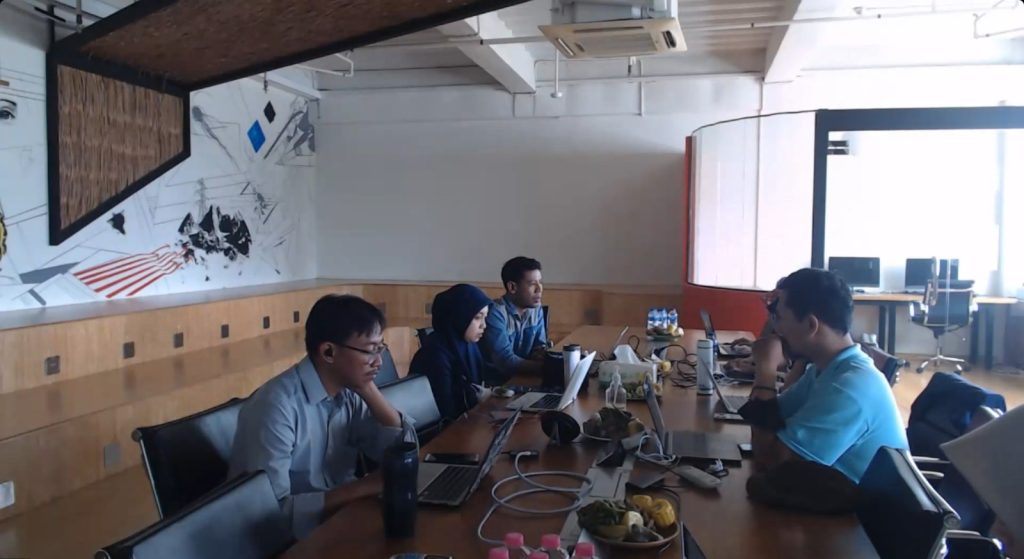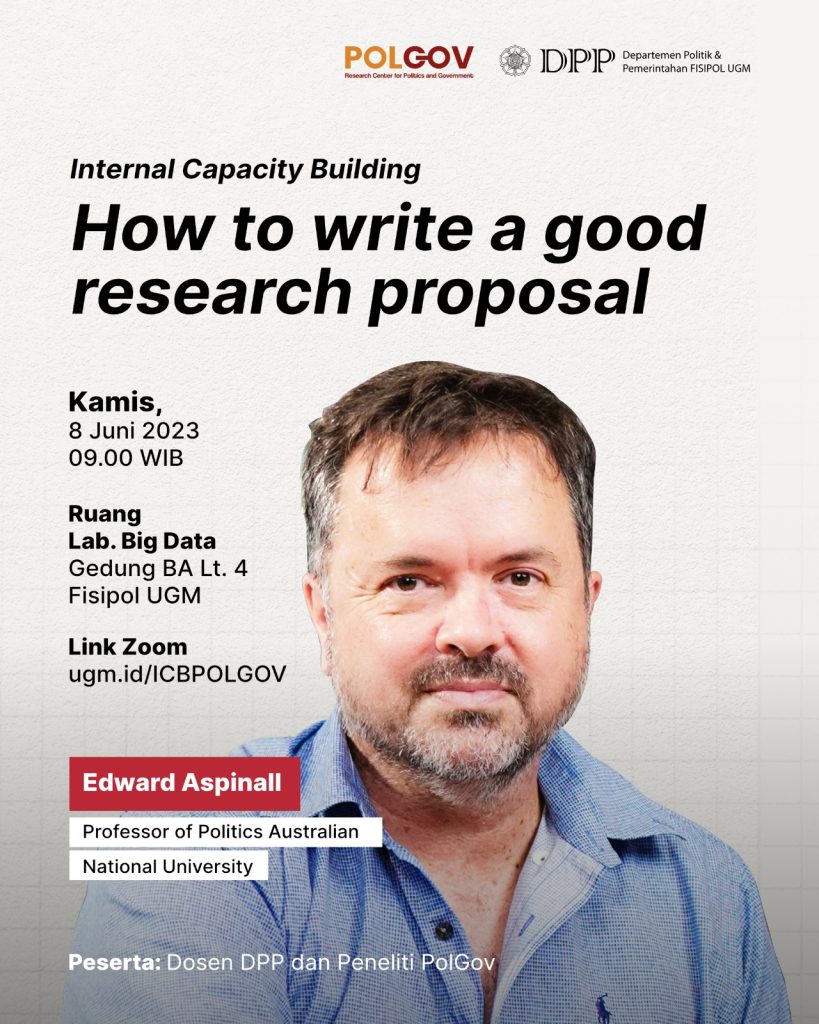Public Lecture: Energy Transition and The Geography of Battery
The research team from the Citizen Engagement and Natural Resource Governance Education (Citres-Edu) program and the Research Center for Politics and Government (PolGov) of the UGM Department of Politics and Government held a public lecture entitled ” Energy Transition and The Geography of Battery.” This event was held in a hybrid manner on Tuesday (20/6/2023). This public lecture aims to offers geographic potential mapping, social, economic and political inequalities arising from battery industrialization in the context of the energy transition in Indonesia and how to anticipate these inequalities.
This event was hosted by PolGov researchers, namely Fitria Yuniarti and Dr. Nanang Indra Kurniawan, lecturer at the Department of Government Politics as a guest speaker. Apart from PolGov researchers and lecturers, this event was also attended by Masters and Doctoral students from the Department of Politics and Government.
Dr. Nanang explained that the energy transition needs to be understood as a process of shifting energy production and consumption from fossil-based energy to radiator energy. “So, the energy transition is envisioned as an effort for us, through various government policies, to continue to ensure economic growth and distribution work, but at the same time also consider the important issues facing the global community today,” said Nanang.
One of the increasing demands in the context of Indonesia’s energy transition is extractive commodities to make battery raw materials. Batteries are considered one of the key elements for the energy transition agenda because of their capacity to perform energy storage. Batteries can be a solution for renewable energy sources whose supply is still unstable and sometimes very dependent on natural conditions.
The expanding demand for batteries and renewable energy, as well as a global commitment to reduce fossil-based energy, have changed the global political landscape. The geopolitical reorganization and role of new global actors, such as China, are being strengthened by its capacity to make large-scale investments in battery technology.
At the same time, the rapid investment in Indonesia’s battery raw material production sector has also created risks of inequality, both in the upstream and downstream sectors. Exploration and exploitation of metal and critical mineral resources in various regions in Indonesia has become an arena of conflict between the government, companies and communities seeking to benefit from the process. Environmental damage arising from mining and potential conflicts often have to be borne by the local community in order to realize “cleaner” energy use elsewhere. Policies, licensing processes, and inventories of critical minerals required for the production of battery raw materials also often limit the actors who can access the benefits of the mining being carried out.
 Previous Post
Previous Post Next Post
Next Post